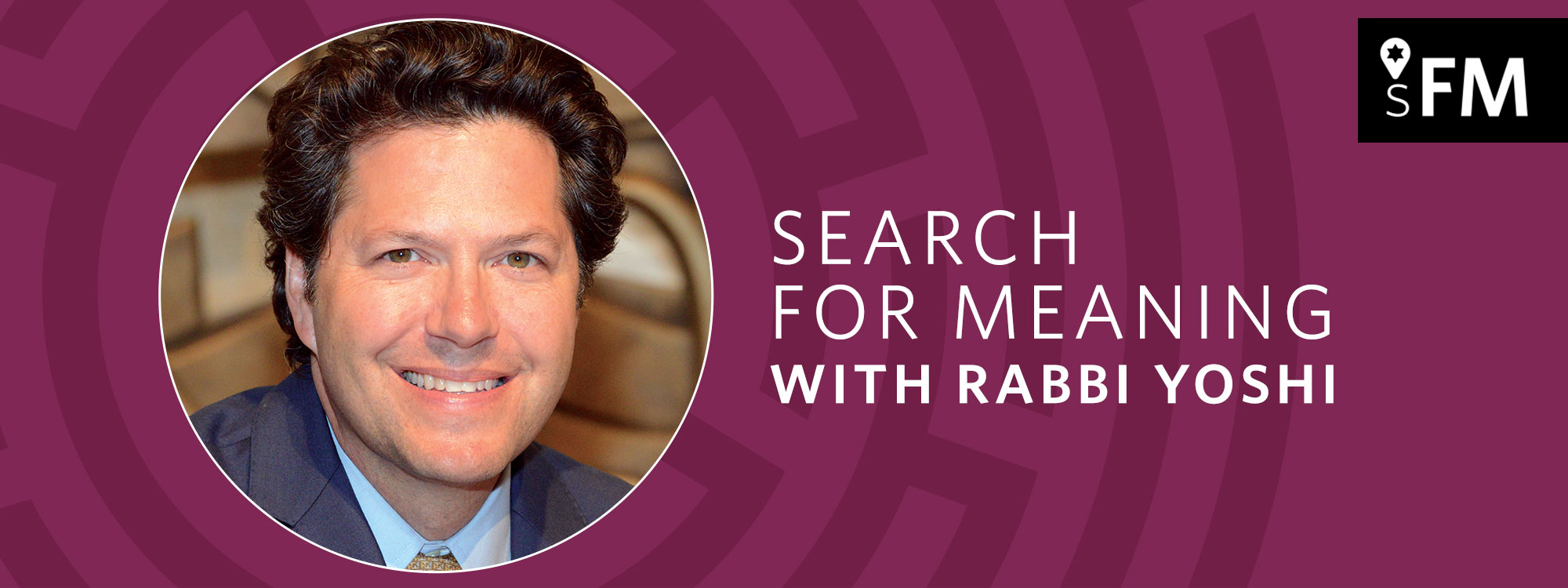In the latest edition of his Search for Meaning podcast, Stephen Wise Temple Senior Rabbi Yoshi Zweiback hosts Matthew Waksman, a brand strategy partner at Ogilvy in Great Britain, one of the top marketing agencies in the world.
Having experienced antisemitism as a young man growing up in London, Waksman wrote a stirring article about anti-Zionism and antisemitism in December of 2021: “When it comes to social justice and inclusive marketing, Jews don’t count.”
The piece was inspired by attacks on Jewish students and Jewish symbols in central London at Hanukkah time, which was only really reported in the Jewish press, a distressing trend that speaks to a much larger and much more concerning issue: Growing antisemitism, cloaked in anti-Zionism, spreading not only across Europe, but across the United States, as well.
Currently in Israel, Waksman delves into how antisemitism and anti-Zionism has complicated international efforts to aid the Ukrainian Jewish community, particularly members of that community who are seeking refuge in Israel. The rise in anti-Zionist sentiment (fueled by growing antisemitism) in Europe and the fear of a proxy war in the Middle East is particularly vexing as the human toll of Russia’s invasion continues to rise.
In response to those like Gigi Hadid, who have made comparisons between the Russia-Ukraine dynamic and the Israel-Palestine relationship, Waksman calls such efforts “incredibly dangerous and reductive,” because of the level of complexity that accompanies such conflicts.
“When people are comparing one conflict to another, it’s never to shine a light on a particular conflict,” Waksman says. “It’s in order to further an agenda or an opinion, which is not about the specific conflict to begin with. I always find it cynical and … deeply unhelpful.”
Russian President Vladimir Putin initially called his invasion a “de-Nazification” effort, despite the fact that Ukraine’s Jewish president Volodymyr Zelenskyy’s great-grandparents were murdered in the Holocausts. Zelenskyy’s response to that—”How could you possibly accuse me of being a Nazi?”—notably omitted the (likely implied) fact that he was Jewish.
“From what I see, at least at the start of the conflict, he was not the one who led with his Jewish identity,” Waksman says. “People then commented, and he did that. He’s not the one who put his Jewish identity [forward], nor should he have to. I’m just making the observation.”
That leads to a deeper conversation about the state of inclusivity, and how Jews, despite being the quintessential Other for millennia, still don’t rank highly in the hierarchy of racism. In the words of British author David Baddiel, “Jews Don’t Count” in identity politics.

